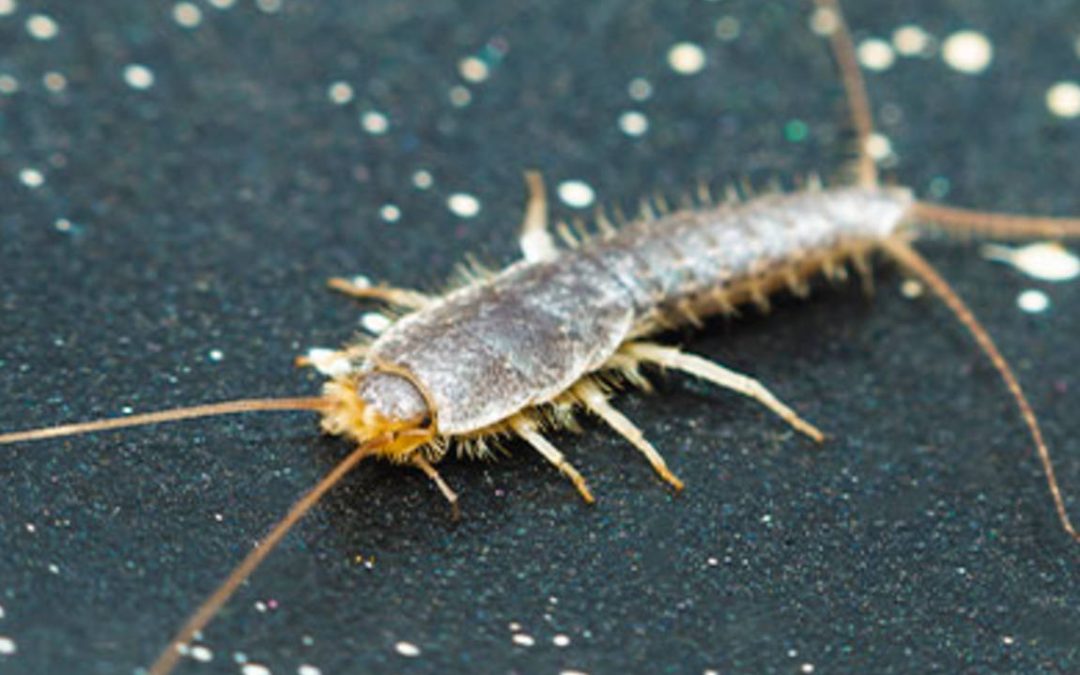
Your Guide To Winter Pests
So, pests aren’t usually a problem in winter, right? Unfortunately not. Just like people, pests such as rodents, spiders, ants, cockroaches, and silverfish look for warm places to nest and hibernate. Continue reading to learn more about how to avoid these frustrating winter pests.
What questions will this article answer?
Why pests are a problem in winter
As the mercury plummets, the cold weather makes your home a warm and safe place to shelter from the harsh elements. With the ability to squeeze through tiny access points inside your home, pests such as rodents, spiders, ants, silverfish and cockroaches can find hiding spots to nest and breed. Before you know it, you could have an outbreak on your hands, unless you act fast!
Rodents
Rodent plagues have been dreaded for centuries, and these clever pests are famous for spreading diseases and contaminating clean places by carrying germs in their fur and droppings. With constantly growing teeth, they’ll happily chew through almost anything that they encounter, from electrical cables to walls, while raiding your kitchen pantry as you sleep!
Signs of a rodent infestation
- You notice them running around, especially after dark
- Dark brown to black droppings shaped like rice grains
- Scurrying, scratching and squeaking sounds above your ceiling at night
- A musty odour
- Partially eaten food and crumbs scattered around the floor
- Gnaw marks on walls, doors, timber, pipes, furniture and cables
Rodent treatment
We use physical rodent traps of different sizes, with larger ones for rats and smaller ones for mice, as well as rodenticide-laced baits for long-lasting rodent management.
For fast rodent control, speak to an expert today
 or
or
Spiders
Often found hiding in less frequented areas, spiders weave sticky cobwebs which are both messy and unhygienic, making housekeeping a hassle. Although most are harmless, some suburban spider species such as redback and funnel web spiders have venomous bites that you’ll definitely want to avoid.
How to spot a spider problem
- You’re seeing more spiders crawling around than usual
- There are spider webs visible on the ceilings, walls, and corners of rooms
- You spot spider burrows in your yard; underneath soil or leaf or compost piles
- You notice rounded egg sacs wrapped in webbing
Spider management
We use targeted insecticide spray and control dust sprinkled into gaps and crevices to treat spider problems quickly and effectively.
Ants
Though they are more commonly seen marching in summer, ants will seek shelter in warm places such as your home to hibernate in winter. From your benchtops to your rubbish bins and toilets, ants can spread disease and contaminate food and surfaces around your home when foraging for food. They’re also known for painful bites which can trigger allergies in both pets and people alike.
Spotting an ant infestation
- You see many ants marching along well-defined trails
- Look for mounds of raised dirt and soil with an entry point to an underground ant nest in your yard
- Carpenter ants can tunnel through wooden structures, leaving signs of damage such as holes as well as discarded wood shavings on the floor
- Fire ants cause damage to plants in your garden
Ant control
At Allstate, we apply ant insecticide spray and ant control dust to affected areas, as well as chemical baits for long-term treatment.
Cockroaches
Small, fast and highly adaptable to their environment ,cockroaches scavenge for food in both clean and unsanitary places, making them masters at spreading nasty germs and diseases. They’re known to cause illnesses such as gastroenteritis, diarrhoea, cholera and dysentery.
Telltale signs of a cockroach outbreak
- You’re noticing more cockroaches scurrying around
- Black granular droppings
- Black-brown egg capsules
- Moulted skins
Cockroach treatment
At Allstate, we use a combination of cockroach insecticide, gel baits and control dust, depending on the severity of your outbreak, to make sure the problem is treated as quickly as possible.
Protect your home from cockroaches. Speak to an expert today.
 or
or
Silverfish
With a diet that consists of starchy or saccharide-rich household items, silverfish are the worst houseguests you could have. From grains and cereals in your pantry to fabric items, paper, timber and upholstered furniture, silverfish can live up to six years by simply surviving on your precious belongings
Signs of a silverfish infestation
- You spot silverfish around your home, particularly at night
- You notice holes and damage to your clothes, furniture, haberdashery and paper-based products
- Dark, round, peppercorn-like droppings
- Moulted skins
Silverfish control
Our pest technicians will use pesticide sprays and fumigation for severe outbreaks , and apply control dust in hard to reach spaces such as wall cavities to effectively manage a silverfish problem.
DIY tips for preventing pest outbreaks this winter
Avoiding the nuisance of a pest outbreak when the mercury drops doesn’t have to be hard. We recommend taking the following simple steps to keep the pests out, and the heat inside this winter:
- Reduce available food sources and hiding spots
- Remove unnecessary clutter such as boxes, stacks of paper and laundry
- Conduct regular yard maintenance by keeping plants well-trimmed and away from your house. Dispose of fallen fruit and remove pet waste and piles of organic matter
- Keep food tightly stored away including pet food and water bowls
- Keep the kitchen clean by wiping away spills, grease and food crumbs. Disinfect surfaces and clear sinks
- Keep bins and rubbish tightly sealed with well-fitting lids
- Inspect your home for potential entry points and seal them over with gap filler, waterproof sealants, caulk or expanding foam
- Cover rainwater tanks and floor vents, install a chimney grate or cap
- Repair leaking taps, pipes and drains as moisture attracts pests such as cockroaches
- Diatomaceous earth is silica-based naturally occurring powder; sprinkled around the perimeter of your home, it is effective at physically deterring insects and spiders from entering
For effective winter pest control, choose Allstate
As pests can be a nuisance all year round, there’s sometimes no way to escape an outbreak, even in the depths of winter. However, Allstate is always here to help, no matter the season.
Since 1986, we’ve grown to become one of Adelaide’s largest locally-operated pest control providers.
Available 24/7 for urgent advice, we offer comprehensive pest assessments and innovative solutions for infestations of all sizes in commercial, residential and industrial settings. All our services are covered by competitive warranties and don’t forget to ask us about finance options.
With an emphasis on using treatments that are non-toxic to children, pets and the environment, we’ll safeguard your home from pests throughout winter and beyond.




